It’s Worldwide Week at Harvard! Taking place October 5 to 9, Worldwide Week highlights the remarkable breadth of Harvard’s global engagement. Here are our quick picks from diverse line-up of engaging events occurring across the university this week, with a specific focus on the complex global challenges we love to explore here at GHELI. Accompanying each event, we’ve highlighted a curated collection from our digital repository that delves further into the topic:
Global Perspectives on COVID-19
Wednesday, Oct. 7 from 8 – 9:30am ET
Scientists from HMS-led Massachusetts Consortium on Pathogen Readiness (MassCPR) in Boston and international colleagues in China, Italy, and South Africa will explore the impact and response to COVID-19 in various regions of the world.
10 Years On: Lessons from the Cholera Epidemic in Haiti
Thursday, Oct. 8 from 2:00—4:00pm ET
October 2020 marks the 10-year anniversary of UN peacekeepers’ introduction of cholera to Haiti. The resulting epidemic has killed over 10,000 people and caused immeasurable losses in Haiti. The UN’s reluctance to accept responsibility and to remedy affected communities has also tested the organization’s commitment to human rights and spurred strong criticisms from inside and outside of the organization.
Resisting Police Violence in the Americas: Mothers on the Front Lines
Thursday, Oct. 8 from 4:00—5:30pm ET
Join us for the first event of the “What Justice Looks Like” discussion series: a conversation with mothers from across the Americas who, after losing children to police and state violence, have become powerful activists fighting for justice and institutional changes to end state violence affecting Black, indigenous, and low-income youth.
Future of Education: Global Voices — to Create Welcoming Communities
Friday, Oct. 9 from 12:00—1:00pm ET
In a context of disruption and uncertainty, how can we fulfill our collective responsibility to ensure that all young people receive a high-quality and inclusive education? How can schools — and the communities around them — create welcoming spaces of belonging, even amid isolationism, both politically and pandemically?
